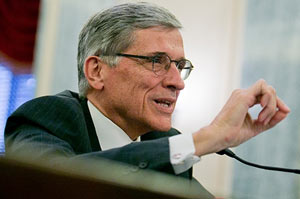 The United States, and to a degree Canada, are the only countries in the world that offer outrageous phone subsidies to stay with a certain cell phone carrier. Overseas things are done a lot differently.
The United States, and to a degree Canada, are the only countries in the world that offer outrageous phone subsidies to stay with a certain cell phone carrier. Overseas things are done a lot differently.
In Europe, Asia, and even the Middle East you buy your cell phone, or smartphone, from a phone retailer not a carrier shop. In Europe and Asia even the major manufacturers have major stores, something you don’t see in the United States. So say you wanted to buy a phone in England, you would walk up to your neighborhood HTC or Samsung shop, buy the phone outright, and then you’re free to go to whatever carrier you want.
The price you pay for a phone outright overseas is closer in price range to the new Nexus 5 or Moto G, so say between $150-$400 USD.
Now if you’ve ever looked at the “actual” cost of your smartphone in the United States you would find that the phone was probably $500-$700 but since you’re signing up for a shiny new 2 year agreement (3 years in Canada) you get the phone for just a fraction of the cost. Sometimes phones are even “free”. But if you decide to end your contract early you have to pay an “early termination fee” which helps recover costs associated with breaking the contract and the cost of the hardware.
Over the past year or so some of the carriers have changed their positioning in their plans, now instead of subsidizing the cost of the phone for your contract you are “financing”the phone over 24 months. If you quit their service though, before the 24 months are up you’re still responsible for the same cost (if not more) than the way it was before.
All of this is very confusing and manufacturers are pissed because it makes them unintentionally less competitive in the United States. Of course you could look at it as more competitive as well. You see across the pond most of all carriers are GSM. GSM is the sim card based platform that is at the root of 4G LTE. Before 4G LTE, T-Mobile and AT&T were the only GSM carriers in the United States. So in Europe and other countries a manufacturer only needed one model of phone for all carriers. Here they at least needed one version for Sprint/Verizon and one for AT&T/T-Mobile. To top that off each carrier wants an exclusive deal that’s why in the past big flagship smartphones like the Samsung Galaxy line and HTC’s high end devices had staggered launches. Heck prior to the iPhone 5 even Apple had exclusivity agreements in place.
All of this is deemed unfair not only to the manufacturers but to the people of America, and that’s got new FCC Chairman Tom Wheeler all hot and bothered.
Reports started coming out on Thursday that the new Chairman of the Federal Communications Commission is trying to get clarity as to where the carriers are specifically when it comes to unlocking phones.
Wheeler sent a letter to CTIA president (and former Seattle Seahawk) Steve Largent demanding better understanding on unlocking policies. FierceWireless reports that Wheeler told Largent in the letter: “provide a clear, concise, and readily accessible policy on unlocking,” and should unlock mobile wireless devices “for customers, former customers, and legitimate owners when the applicable service contract, installment plan, or early termination fee has been fulfilled.”
Wheeler also wanted carriers to take it a step further adding that carriers should:”affirmatively notify customers when their devices are eligible for unlocking and/or automatically unlock devices when eligible, without an additional fee.”
While issues of unlocking have come up for years the FCC has been working with CTIA over the past 8 months to ammend their consumer code and make it clear to customers what their rights are after they’ve purchased a phone. Phones are so often tossed to the wayside or thrown away at the end of the contract period because a customer has been enticed to get a shiny new phone to get onto a shiny new contract.
Wheeler, the manufacturers and other consumer advocates feel that as long as the customer has satisfied the cost of the phone, the phone is their property and they should be able to do whatever they want with it.
In layman’s terms one consumer advocate likened this to buying a Ford and then Ford telling you at the end of your 5 year financing you couldn’t do anything but buy another Ford.
While the FCC and CTIA are working together on consumer guidelines, CTIA is also lobbying for legislation which would make the guidelines around unlocing laws that could be regulated better. CTIA immediately responded to Wheeler and said:
We look forward to continuing discussions under Chairman Wheeler’s leadership and to ensuring consumers continue to benefit from the world-leading range of competitive devices and offerings. Today’s U.S. consumers have a wide variety of unlocked device and liberal carrier unlocking policies available to them. CTIA also continues to advocate for the passage of ‘The Unlocking Consumer Choice and Wireless Competition Act’ (H.R. 1123), which would address consumer confusion about unlocking as a result of the 2012 decision of the Librarian of Congress. While CTIA supports giving consumers a robust set of options, it is important for consumers to note that an unlocked phone doesn’t necessarily mean an interoperable phone, given the technological and engineering realities of wireless network
What does this mean for you?
Well hopefully in the next year or so the next smartphone you buy you will actually own when the contract or financing period is up and then after that you can sell it, change carriers or do whatever you want with it, after all you paid for it.
